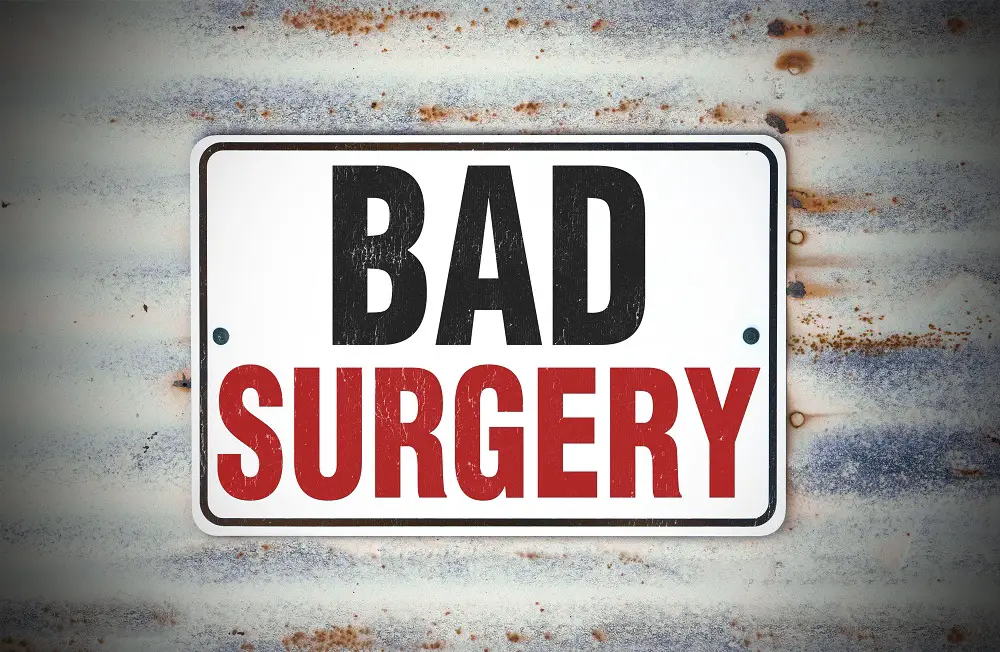Difference Between Negligence and Malpractice
If you or one of your friends want to file personal injury claims, understating the difference between negligence and malpractice will help you make informed decisions.
But when you are the victim, you have to juggle between treating the injury, coping with the mental distress, making lifestyle changes. You will not have the time needed to plow through pages of legalese.
This is why, in this article, we aim to provide a clear and easy-to-understand overview of what the actual difference is. Let’s begin!
Negligence vs. Malpractice: An Overview
To know the difference between these two terms, you should first know what these two terms actually mean.
What Is Negligence?

Generally, negligence denotes a lack of due care in conduct. Under a particular set of instances, a reasonable person is expected to meet a certain standard of care. When someone fails to meet that standard, it is said to be negligence.
There are four parameters that must be proven when suing an organization or person for negligence –
Duty
Someone, or an organization, is legally obliged to ensure your safety.
Breach
This legal duty has been breached by the person or organization.
Causation
The cause of the injury you suffered is the said breach done by the person or organization.
Damages
This breach of duty has resulted in injuries that you have suffered.
A very common term used when dealing with negligence legally is medical negligence. It contains the same four elements as mentioned above, involving a doctor or authorizes hospital personnel.
When we go to a hospital, we naturally assume to leave in a better state than we were when we entered. And the medical staff of the hospital is obligated to follow a set medical standard of care to help you in any way they can.
If, due to accidental carelessness, the medical staff fails to provide a reasonable amount of care, then it is medical negligence. Medical professionals in this case include doctors, nurses, and anyone else with whom you share a provider-patient relation.
What Is Malpractice?

In the previous scenario, medical malpractice would be when a medical professional, such as a doctor, pharmacist, or nurse, intentionally fails to provide you with the accepted standard of medical practice, which causes you injury.
Negligence becomes malpractice when it is done intentionally.
The Differences Between Negligence and Malpractice
By now, from the definitions and discussions above, the key difference between negligence and malpractice should be clear to you.
The Key Difference
From the accepted standard of care when it comes to medical care, the extent to which the person in question’s actions vary will help determine whether the injury happened due to an unintentional and avoidable mistake or the actions were intentionally negligent.
If the injury was inflicted from an avoidable and accidental mistake, then it is medical negligence. But if the action seems more intentionally negligent, then it is medical malpractice. So, the main difference between these two is the intent of the accused person.
The Outcomes of Negligence and Malpractice
When you sue for negligence, if your lawyer can prove that a breach of duty was caused by a person within the scope of their job, then you will win compensations.
These compensations include compensation for the medical bills paid for the injury, physical & emotional pain and suffering caused by the injury, any loss of income due to the injury, any lost quality of life, legal expenses, property damages, etc.
The charge for malpractice is graved than that of negligence. In addition to all of the compensations mentioned above, a defendant found guilty of malpractice might also have to pay for punitive damages.
Some of Our Articles You May Want to Read:
- Difference Between Counseling and Psychotherapy
- Cold Vs. Flu: 4 Differences That’ll Stop Your Confusion
- Heterozygous Vs. Homozygous – What Are The Differences?
- 4 Key Differences Between HMO And PPO
The Differences Between Negligence and Malpractice: A Table
Here are the main differences at a glance –
Negligence |
Malpractice |
|
| Nature of Failure | Accidental | Intentional |
| Defendant | Can be anyone working within the scope of their job, not just a professional | Professionals required to follow a set standard of care |
| Proof Needed | Has to prove that the defendant was careless or caused a breach of duty | Has to prove that the defendant breached the professional duty of care |
| Compensation | Medical bills, physical & emotional pain and suffering, loss of income | All of the negligence compensations, with additional punitive damages |
Final Words
In this article, I have tried my best to point out the difference between negligence and malpractice as simply as possible. If you have understood everything by now, then you should also realize that all malpractices are also negligence, but all negligence are not necessarily malpractices.
Whenever you are filing a suit, go over all the possible claims that you can make with your lawyer to make the best decision. I wish you a speedy recovery. May justice win!







